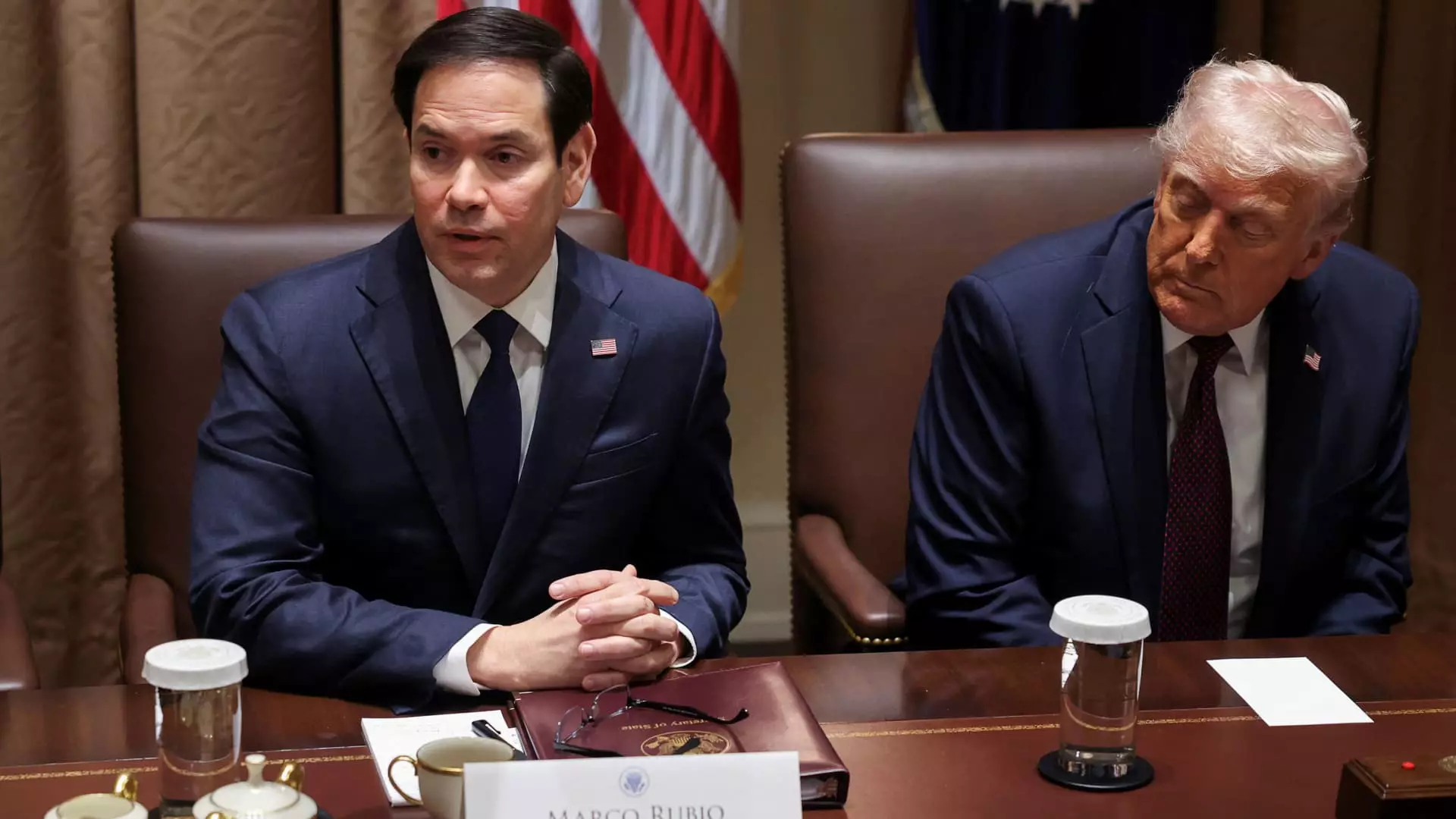The Trump administration’s proposed overhaul to the U.S. State Department represents a seismic shift in American diplomacy, fundamentally restructuring an institution long deemed essential to the nation’s international engagement. The draft executive order—labelled a “disciplined reorganization”—is not merely bureaucratic tinkering; it is a clarion call to dramatically redefine what American foreign policy entails and how it operates on a global scale. This maneuver appears poised to unleash a wave of changes that could obliterate the decades-old norms governing diplomacy, all while ostensibly promoting a simplified and more efficient diplomatic approach aligned with an “America First” ethos.
At its core, the proposed changes signal a troubling disregard for the rich complexities of international relations. By shuttering embassies in sub-Saharan Africa and minimizing the diplomatic footprint in expansive regions, the administration seems intent on disengaging from critical dialogues and relationships that have been meticulously cultivated over generations. In an era where global challenges—ranging from climate change to human rights—demand nuanced understanding and cooperation, the decision to eliminate offices focused on these issues appears devastatingly shortsighted.
The Consequences of a Shrinking Presence
Eliminating diplomatic facilities in vital regions like Southern Africa doesn’t just impact the operational landscape for diplomats; it diminishes America’s voice on pressing global matters. U.S. diplomatic strategy requires agility and adaptability, particularly in areas where threats to democracy and human rights persist. The proposal to shutter embassies essentially signals to allies and adversaries alike that the United States is retreating from its long-held position as a leader in global governance and humanitarian advocacy.
The consolidation of regional bureaus into four distinct corps—each with their broad-brush strokes of responsibility—will likely impair the precision and adaptability necessary for effective diplomacy. The complexity of international relations cannot be distilled into simplistic regional categories while ignoring the unique sociopolitical dynamics at play. This simplistic methodology risks treating nuanced, entrenched issues like migration and criminal justice merely as side notes in a broader administrative agenda.
Moreover, reducing diplomatic engagement with our neighbor to the north, Canada, is an action rife with diplomatic faux pas. The suggestion that U.S. State Department operations in Canada can function effectively under a “significantly reduced team” without destabilizing the intricate web of North American relations is naive, if not emblematic of a larger philosophical shift towards isolationism. This maneuver is not just an affront to Canada but also sends a disquieting message to other allies about the reliability and commitment of the United States in maintaining cooperative relations.
Rethinking the Diplomatic Workforce
Even more concerning is the proposed overhaul of the hiring and training processes for diplomats. Scrapping longstanding evaluative metrics like the Foreign Service Officer Test in favor of aligning candidates with the president’s foreign policy vision raises red flags. This shift prioritizes ideological conformity over the essential qualities of diplomacy—knowledge, compassion, and commitment to international collaboration. For decades, the Foreign Service has attracted some of America’s brightest minds, individuals passionate about global engagement and equipped with critical thinking skills necessary for navigating complex international challenges. To dismantle this system not only undermines the department but also threatens the integrity of American diplomacy itself.
Additionally, the draft’s allowance for foreign service personnel to opt for voluntary separation if they resist the new structure indicates a chilling atmosphere for those who might advocate for a more comprehensive, multifaceted approach to foreign policy in an era when it is needed most. This fear-driven restructuring serves as a poignant reminder of how political agendas can eclipse the fundamental values of diplomacy.
As the deadline for this sweeping restructuring looms, the ramifications of these changes will resonate far beyond Washington. The reallocation of resources and focus could lead to diminished American influence globally at a time when the world is more interconnected than ever and when American leadership is critically needed for cooperative solutions. This reorganization could be a lose-lose scenario, heralding increased isolationism while simultaneously diminishing our capacity to confront global challenges effectively.

Leave a Reply